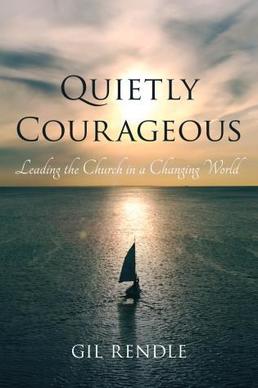How are congregations managing their money during COVID-19? How are they engaging their members? Or planning for their future? Our partners at Lake Institute on Faith & Giving recently released the results of a survey of more than 550 congregations that offer a window into these questions.
In this edition of the Weekly, we’ll focus specifically on the questions of congregational economics. We’ll begin with a story from our colleagues at Faith & Leadership about the survey results, which includes an interview with David King of Lake Institute. Then, we’ll look back to April when twelve Christian leaders offered their opinions on whether the church could financially survive the pandemic. Dan Hotchkiss then offers a word about how congregations can be transparent about money. We’ll conclude with a conversation guide for your congregation so that your leadership team can engage these resources.
Welcome to the Weekly.
A recent Lake Institute on Faith & Giving survey offers cause for optimism as well as a path forward for congregations wrestling with uncertainty.
Will the church financially survive the pandemic?
Early in the American experience of the COVID-19 pandemic, our colleagues at Faith & Leadership asked twelve Christian leaders to reflect on the ways that the pandemic might affect the financial health and sustainability of churches. Rereading their answers now still offers wisdom and insight.
How to be transparent about money
When congregations set out to be more transparent about their finances, people don’t need more data. What they need is information — data framed in such a way that it informs their thinking, writes former Alban Senior Consultant Dan Hotchkiss.
A guide to congregational conversation
One of the best uses of surveys like the one released by Lake Institute is to catalyze conversation among your own congregational leadership team. Here are some questions to get that conversation going:
- What have you noticed about your congregation’s giving during the pandemic? What has changed that’s worth paying attention to, and what has remained consistent that’s worth celebrating?
- How are you communicating with your congregation about your financial health during this time?
- What might your congregational experience during the pandemic suggest about a stewardship campaign?
- In the past, what assumptions has your congregation made in its budgeting process? How has the pandemic challenged or confirmed those assumptions, and how is that shaping your budget planning for 2021?
- What have you learned about the economic realities of the lives of your members or your staff across these months? Have there been surprises that could shape future ministries or potential outreach?
- The pandemic has underscored and deepened significant economic injustices in American society. How is your congregation responding to those injustices during this time? Who within your congregation is poised to lead in those efforts?
From the Alban Library
The changing dynamics of contemporary church life are well-known, but what’s less well-known is how leaders can work most effectively in this new context. In Quietly Courageous, esteemed minister and congregational consultant Gil Rendle offers practical guidance to leaders—both lay and ordained—on leading churches today. Rendle encourages leaders to stop focusing on the past and instead focus relentlessly on their mission and purpose—what is ultimately motivating their work. He also urges a shift in perspectives on resources, discusses models of change, and offers suggestions for avoiding common pitfalls and working creatively today.
Before you go…
This has, of course, been a challenging year for congregations globally, and 2020 isn’t over yet. But Lake Institute’s survey names for us some of the ways that congregations have adapted to meet the challenges of the moment. It is a reminder of the creativity, resilience and commitment of communities of faith. Don’t miss the moment to mark how far you have come and how you have served in these days.
Until next week, peace!

Nathan Kirkpatrick
Managing Director, Alban at Duke Divinity




